What is Tourette syndrome?
Tourette syndrome (sometimes shortened to just Tourette's) is a neurological disorder that affects the brain and nervous system. It causes tics, which are sudden movements or sounds that a person makes over and over and can’t easily control. Tics usually start in childhood, often between the ages of 5 and 10.
There are two main types of tics:
- Motor tics involve body movements like blinking, head jerking or shoulder shrugging
- Vocal tics include sounds like throat clearing, grunting or sniffing
Tics can also be simple (like eye blinking or sniffing) or complex, involving a series of movements or repeated words and phrases.
Tourette syndrome symptoms often get better with time. Many people see fewer or milder tics as they grow older. While there’s no cure, treatment, therapy and support can help manage Tourette's symptoms and improve everyday life.
Tourette syndrome symptoms
Tourette syndrome causes tics—sudden, repeated movements or sounds that you can’t control. Tics are the main symptom of Tourette syndrome and usually start in early childhood, typically in the head and neck. They can be mild or more noticeable, and sometimes they change over time. Tics are often worse during times of stress, excitement or fatigue.
There are two types of tics: motor and vocal. Each type can be simple or complex, depending on how many muscle groups are involved and how the tic appears.
Not everyone with Tourette syndrome experiences both motor and vocal tics, and not everyone has complex tics. Some people may only have mild tics that don’t interfere with daily life, while others may have more noticeable symptoms.
-
Motor tics
Motor tics are movements of the body that a person can’t control. They may be quick and simple or more involved and complex.
Simple motor tics- Eye blinking
- Arm jerking
- Head jerking
- Shoulder shrugging
- Grimacing
- Nose twitching
- Mouth movements
- Bending
- Hopping
- Jumping
- Twisting
- Touching or sniffing objects
- Copying other people’s movements (echopraxia)
- Gesturing in patterns
-
Vocal tics
Vocal tics are involuntary sounds made with the voice. These can range from small sounds to longer, more noticeable vocalizations.
Simple vocal tics- Throat clearing
- Sniffing
- Grunting
- Barking
- Coughing
- Repeating other people (echolalia)
- Repeating your own words or phrases
- Using vulgar or inappropriate words (coprolalia)
- Speaking in unusual patterns
- Using out-of-context phrases
When to see a doctor
If you or your child has repeated movements or sounds that seem hard to control, it’s a good idea to talk to a doctor. While tics may be mild or come and go, a medical provider can help figure out what’s going on and whether treatment or support is needed.
Early diagnosis can lead to better management, especially if tics affect daily life. Your primary care doctor may refer you to a specialist, such as a neurologist or a mental health provider, for further care.
Risk factors for Tourette syndrome
While the exact cause of Tourette syndrome isn’t fully understood, researchers believe a combination of genetic and environmental factors plays a role. Some people may be more likely to develop the condition based on their family history, prenatal environment or biological sex. Understanding these risk factors can help with early detection, diagnosis and support.
Here are some common risk factors:
- Family history: Tourette syndrome tends to run in families. If a parent, sibling or other close relative has tics or a tic disorder, you may have a higher risk of developing the condition.
- Prenatal health: Certain pregnancy-related issues—such as complications during birth, maternal stress or illness, smoking during pregnancy or low birth weight—can affect brain development and increase the risk of Tourette syndrome.
- Associated conditions: Individuals with certain conditions such as attention deficit-hyperactivity disorder (ADHD) and obsessive-compulsive disorder (OCD) have a higher risk of Tourette syndrome.
- Sex: Boys are three to four times more likely than girls to be diagnosed with Tourette syndrome. Researchers don’t yet know why, but sex-related differences in brain development and hormones may play a role.
Complications
Many people with Tourette syndrome lead full, healthy lives. But the condition can sometimes cause challenges that affect your well-being and daily life. Severe tics may lead to self-injury, and other tics can cause embarrassment, low self-esteem or make you want to avoid social situations.
Tourette syndrome often occurs alongside other behavioral health conditions, also called co-occurring conditions. These may include:
- Anxiety disorders
- Attention-deficit/hyperactivity disorder (ADHD)
- Autism spectrum disorder
- Depression
- Learning disabilities
- Obsessive-compulsive disorder (OCD)
- Oppositional defiant disorder (ODD)
- Sensory processing issues
- Sleep disorders
- Functional neurological disorder (FND)
How is Tourette syndrome diagnosed?
Tourette syndrome is diagnosed by looking at your symptoms and medical history. There’s no single test to confirm it, so your doctor will focus on when your tics started, how often they happen and if something else could be causing them.
To rule out other conditions, your doctor may order tests like blood work or brain imaging (such as an MRI or CT scan). You may also be referred to a neurologist, psychiatrist or developmental specialist for further evaluation.
To be diagnosed with Tourette syndrome, all of the following must be true:
- You have both motor and vocal tics, though they don’t have to happen at the same time.
- Tics have been present for at least one year, even if they come and go.
- Symptoms started before age 18.
- The tics aren’t caused by another medical condition or medication.
Tourette syndrome treatment
There’s no cure for Tourette syndrome, but treatment can help you feel more in control. Many people find that the right care makes tics less severe and helps with related conditions like anxiety or ADHD. Your doctor may recommend medication, therapy or lifestyle changes based on your age, symptoms and overall health.
Treatment looks different for everyone. Whether your goal is to reduce tics, manage emotions or build confidence, your care team will create a plan that works for you.
Medication
Medications won’t stop tics completely, but it can help make them less frequent or less noticeable. Your care team will work with you to find the best option and adjust it as needed.
Medication options include:
- Alpha-2 adrenergic agonists: These medications, like clonidine and guanfacine, are often used to treat high blood pressure but can also help reduce tics and symptoms of ADHD. They work by calming nerve signals in the brain.
- Antidepressants: A type called selective serotonin reuptake inhibitors (SSRIs), like fluoxetine or sertraline, may help if you have anxiety, depression or obsessive thoughts along with tics.
- Aripiprazole: This newer antipsychotic helps balance dopamine in the brain and may lower the number and intensity of Tourette syndrome tics with fewer side effects than older medications.
- Central nervous system stimulants: If you have ADHD, stimulants like methylphenidate or amphetamine salts may help with focus and attention. In many cases, they don’t make tics worse.
- Conventional antipsychotics: Older medications like haloperidol and pimozide can reduce tics by blocking dopamine but may cause more side effects, so they’re usually only used when other treatments don’t help.
- VMAT 2 inhibitors: These medications, typically used for conditions such as tardive dyskinesia and Huntington disease, decrease dopamine release in the brain and can reduce involuntary movements.
Therapy
Therapy can help you manage tics, understand your condition and feel more in control. It’s often used along with medication or on its own if symptoms are mild.
Types of therapy your doctor might suggest include:
- Behavioral therapy: A trained therapist can teach you ways to change how you respond to tics. One proven approach is called Comprehensive Behavioral Intervention for Tics (CBIT). It includes habit reversal training, education about tics and relaxation exercises to help you feel more in control.
- Psychotherapy: Talking with a mental health professional can help you deal with stress, anxiety, depression or OCD. It gives you tools to cope with challenges and build confidence.
- Family therapy or support: If your child has Tourette syndrome, therapy that includes parents or caregivers can improve communication, reduce stress at home and help everyone feel more supported.
Deep brain stimulation (DBS)
Deep brain stimulation (DBS) is a surgical option that may be considered for severe Tourette syndrome when other treatments haven’t worked. It’s usually only recommended for adults or older teens with disabling tics that don’t respond to medication or therapy.
During the procedure, a neurosurgeon places thin wires, called electrodes, into specific areas of the brain that affect movement and behavior. These electrodes are connected to a small device implanted under the skin in the chest, similar to a pacemaker. The device sends electrical signals to help regulate brain activity and reduce tics.
DBS doesn’t cure Tourette syndrome, but it may help lessen the severity of tics in some people. Like any brain surgery, it comes with risks, so your doctor will carefully weigh the benefits and potential side effects before recommending it.
Find specialized care for Tourette syndrome
At Baylor Scott & White, we offer several locations for the care and treatment of conditions like Tourette syndrome and other neurological disorders in North and Central Texas. Whether you are seeking a diagnosis, looking for treatment or require ongoing support, we’re here for you.

Baylor Scott & White Dallas Diagnostic Association - Garland (Satellite)
5220 W University Dr POB II, Ste 250, McKinney, TX, 75071
- Monday: 8:00 am - 5:00 pm
- Tuesday: 8:00 am - 5:00 pm
- Wednesday: 8:00 am - 5:00 pm
- Thursday: 8:00 am - 5:00 pm
- Friday: 8:00 am - 5:00 pm
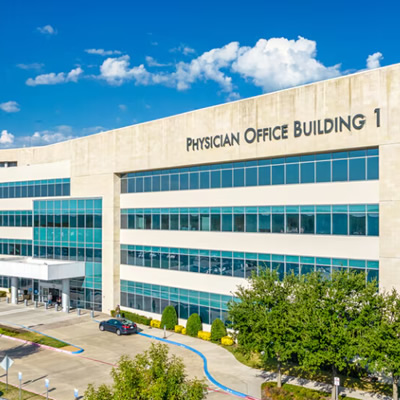
Baylor Scott & White Neurology - McKinney
5236 W University Dr Ste 3700, McKinney, TX, 75071
- Monday: 8:00 am - 4:30 pm
- Tuesday: 8:00 am - 4:30 pm
- Wednesday: 8:00 am - 4:30 pm
- Thursday: 8:00 am - 4:30 pm
- Friday: 8:00 am - 4:30 pm

Baylor Scott & White Medical Center - McKinney
5252 W University Dr Highway 380 at Lake Forest Drive, McKinney, TX, 75071
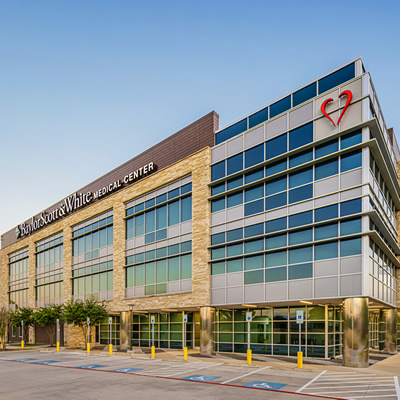
Baylor Scott & White Medical Center - Lake Pointe
6800 Scenic Dr , Rowlett, TX, 75088

Baylor Scott & White Neurology - Lake Pointe
7600 Lakeview Pkwy Ste 150, Rowlett, TX, 75088
- Monday: 8:00 am - 4:00 pm
- Tuesday: 8:00 am - 4:00 pm
- Wednesday: 8:00 am - 4:00 pm
- Thursday: 8:00 am - 4:00 pm
- Friday: 8:00 am - 4:00 pm
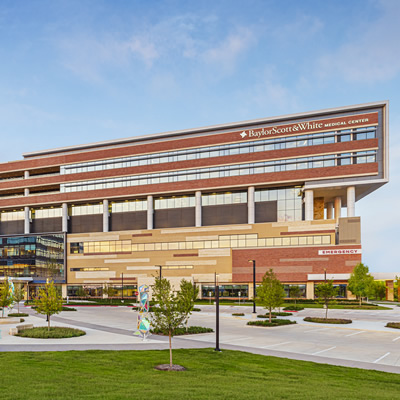
Baylor Scott & White Medical Center - Frisco at PGA Parkway
7600 Better Way , Frisco, TX, 75033
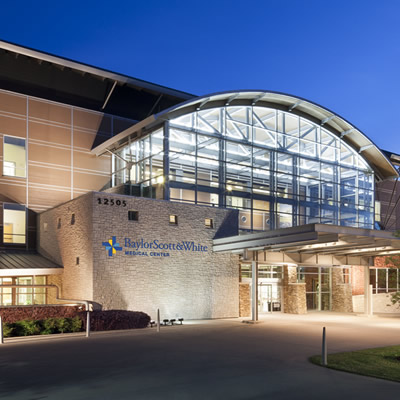
Baylor Scott & White Medical Center - Centennial
12505 Lebanon Rd , Frisco, TX, 75035
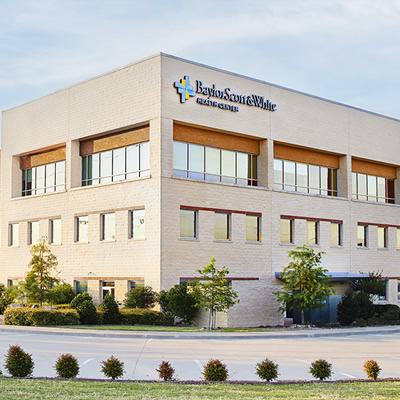
Baylor Scott & White Dallas Diagnostic Association - Garland
7217 Telecom Pkwy Ste 300, Garland, TX, 75044
- Monday: 8:00 am - 4:30 pm
- Tuesday: 8:00 am - 4:30 pm
- Wednesday: 8:00 am - 4:30 pm
- Thursday: 8:00 am - 4:30 pm
- Friday: 8:00 am - 4:30 pm
- Monday: 8:00 am - 4:15 pm
- Tuesday: 8:00 am - 4:15 pm
- Wednesday: 8:00 am - 4:15 pm
- Thursday: 8:00 am - 4:15 pm
- Friday: 8:00 am - 4:15 pm

Baylor Scott & White Orthopedic Associates of Dallas - Sports Concussion Program at The Star
3800 Gaylord Pkwy Ste 810, Frisco, TX, 75034
- Monday: 8:00 am - 5:00 pm
- Tuesday: 8:00 am - 5:00 pm
- Wednesday: 8:00 am - 5:00 pm
- Thursday: 8:00 am - 5:00 pm
- Friday: 8:00 am - 5:00 pm
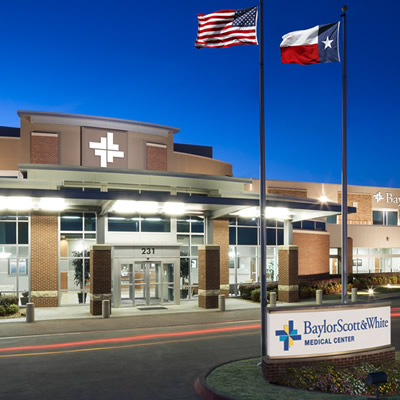
Baylor Scott & White Medical Center - Sunnyvale
231 S Collins Rd , Sunnyvale, TX, 75182

Baylor Scott & White - Plano Brain and Spine Center
4708 Alliance Blvd Pavilion I, Ste 810, Plano, TX, 75093

Baylor Scott & White Neurology - Plano
4708 Alliance Blvd Pavilion I, Ste 550, Plano, TX, 75093
- Monday: 8:00 am - 5:00 pm
- Tuesday: 8:00 am - 5:00 pm
- Wednesday: 8:00 am - 5:00 pm
- Thursday: 8:00 am - 5:00 pm
- Friday: 8:00 am - 4:30 pm

Baylor Scott & White Dallas Diagnostic Association - Plano
4716 Alliance Blvd Pavilion II, Plano, TX, 75093
- Monday: 7:00 am - 5:00 pm
- Tuesday: 7:00 am - 5:00 pm
- Wednesday: 7:00 am - 5:00 pm
- Thursday: 7:00 am - 5:00 pm
- Friday: 7:00 am - 5:00 pm
- Saturday: 8:00 am - 12:00 pm
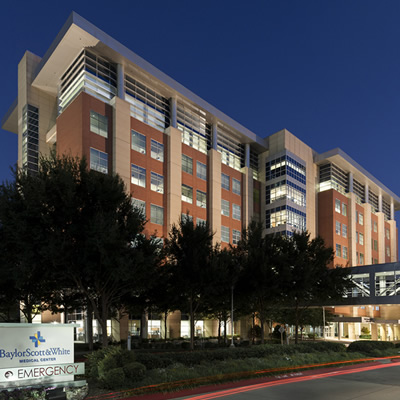
Baylor Scott & White Medical Center - Plano
4700 Alliance Blvd , Plano, TX, 75093

Baylor Scott & White Neurology Hospitalist Group - Plano
4700 Alliance Blvd , Plano, TX, 75093

The Headache Center at Baylor University Medical Center
9101 N Central Expy Ste 400, Dallas, TX, 75231

Baylor Scott & White Neuroscience Center
9101 N Central Expy Ste 400, Dallas, TX, 75231

Baylor Scott & White Headache Medicine Specialists of North Texas - Dallas
9101 N Central Expy Ste 400, Dallas, TX, 75231
- Monday: 8:00 am - 4:30 pm
- Tuesday: 8:00 am - 4:30 pm
- Wednesday: 8:00 am - 4:30 pm
- Thursday: 8:00 am - 4:30 pm
- Friday: 8:00 am - 4:30 pm

Baylor Scott & White Cognitive and Behavioral Neurology Associates
9101 N Central Expy Ste 230, Dallas, TX, 75231
- Monday: 8:00 am - 4:30 pm
- Tuesday: 8:00 am - 4:30 pm
- Wednesday: 8:00 am - 4:30 pm
- Thursday: 8:00 am - 4:30 pm
- Friday: 8:00 am - 4:30 pm

Baylor Scott & White Institute for Rehabilitation - Dallas
909 N Washington Ave , Dallas, TX, 75246

Baylor University Medical Center, part of Baylor Scott & White Health
3500 Gaston Ave , Dallas, TX, 75246
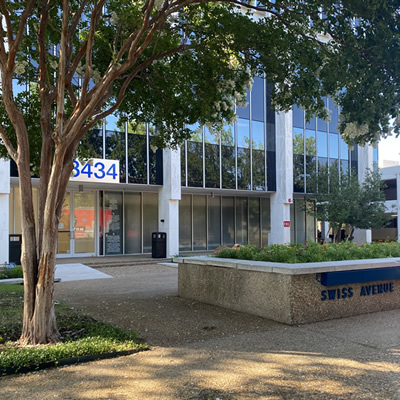
Baylor Scott & White Neurology - Dallas
3434 Swiss Ave Ste 400, Dallas, TX, 75204
- Monday: 7:30 am - 4:30 pm
- Tuesday: 7:30 am - 4:30 pm
- Wednesday: 7:30 am - 4:30 pm
- Thursday: 7:30 am - 4:30 pm
- Friday: 7:30 am - 4:30 pm

Baylor Scott & White Medical Center - Irving
1901 N MacArthur Blvd , Irving, TX, 75061

Baylor Scott & White Neurology - Irving
2021 N MacArthur Blvd Ste 210, Irving, TX, 75061
- Monday: 8:00 am - 4:30 pm
- Tuesday: 8:00 am - 4:30 pm
- Wednesday: 8:00 am - 4:30 pm
- Thursday: 8:00 am - 4:30 pm
- Friday: 8:00 am - 1:00 pm

Baylor Scott & White Medical Center - Grapevine
1650 W College St , Grapevine, TX, 76051

Baylor Scott & White Medical Center - Waxahachie
2400 N Interstate 35E , Waxahachie, TX, 75165

Baylor Scott & White All Saints Medical Center - Fort Worth
1400 8th Ave , Fort Worth, TX, 76104
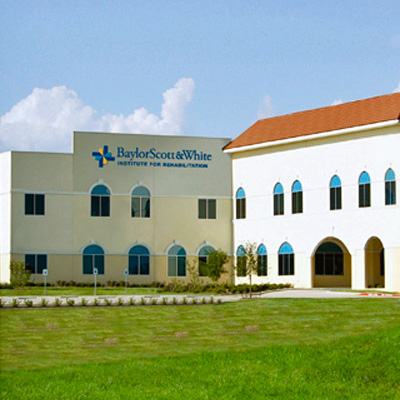
Baylor Scott & White Institute for Rehabilitation - Fort Worth
6601 Harris Pkwy , Fort Worth, TX, 76132
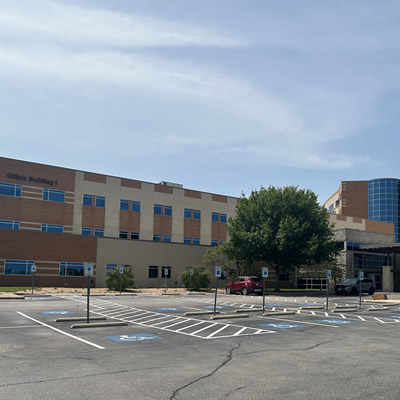
Baylor Scott & White Neurosciences Clinic - Waco
50 Hillcrest Medical Blvd Ste 201-A, Waco, TX, 76712
- Monday: 8:00 am - 5:00 pm
- Tuesday: 8:00 am - 5:00 pm
- Wednesday: 8:00 am - 5:00 pm
- Thursday: 8:00 am - 5:00 pm
- Friday: 8:00 am - 5:00 pm
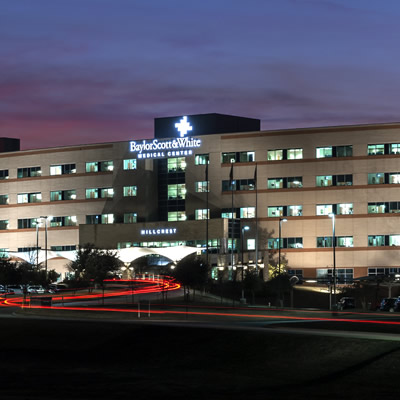
Baylor Scott & White Medical Center - Hillcrest
100 Hillcrest Medical Blvd , Waco, TX, 76712

Baylor Scott & White Clinic - College Station Rock Prairie
800 Scott and White Dr , College Station, TX, 77845
- Monday: 7:30 am - 5:00 pm
- Tuesday: 7:30 am - 5:00 pm
- Wednesday: 7:30 am - 5:00 pm
- Thursday: 7:30 am - 5:00 pm
- Friday: 7:30 am - 5:00 pm

Baylor Scott & White Medical Center - College Station
700 Scott and White Dr , College Station, TX, 77845
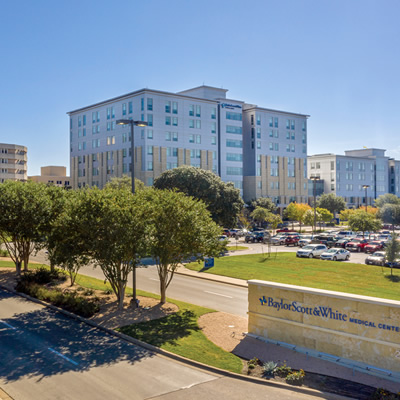
Baylor Scott & White Medical Center - Temple
2401 S 31st St , Temple, TX, 76508
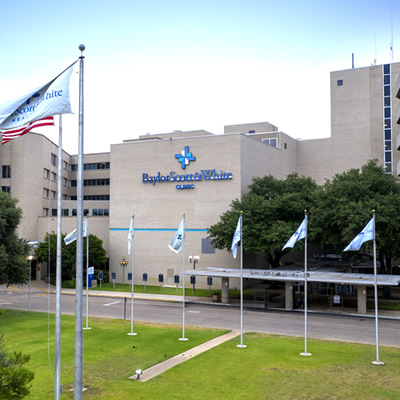
Baylor Scott & White Clinic - Temple
2401 S 31st St , Temple, TX, 76508
- Monday: 8:00 am - 5:00 pm
- Tuesday: 8:00 am - 5:00 pm
- Wednesday: 8:00 am - 5:00 pm
- Thursday: 8:00 am - 5:00 pm
- Friday: 8:00 am - 5:00 pm
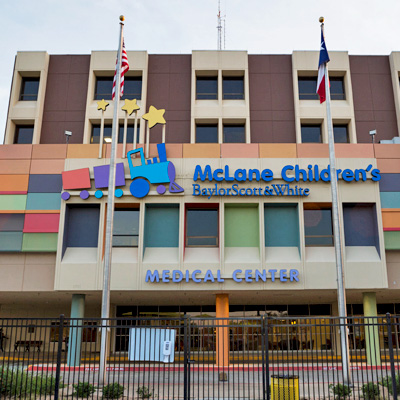
Baylor Scott & White McLane Children's Medical Center - Temple
1901 SW H K Dodgen Loop , Temple, TX, 76502
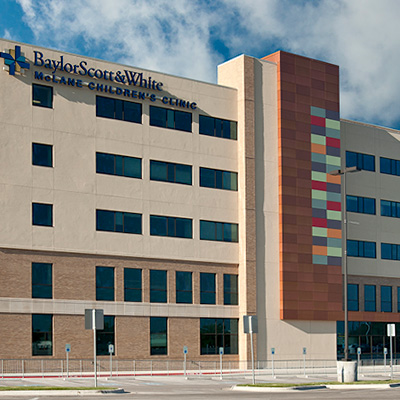
Baylor Scott & White McLane Children's Specialty Clinic - Temple
1901 SW H K Dodgen Loop , Temple, TX, 76502

Baylor Scott & White Medical Center - Brenham
700 Medical Pkwy , Brenham, TX, 77833

Baylor Scott & White Specialty Clinic - Killeen Hemingway
2405 S Clear Creek Rd , Killeen, TX, 76549
- Monday: 8:00 am - 5:00 pm
- Tuesday: 8:00 am - 5:00 pm
- Wednesday: 8:00 am - 5:00 pm
- Thursday: 8:00 am - 5:00 pm
- Friday: 8:00 am - 5:00 pm
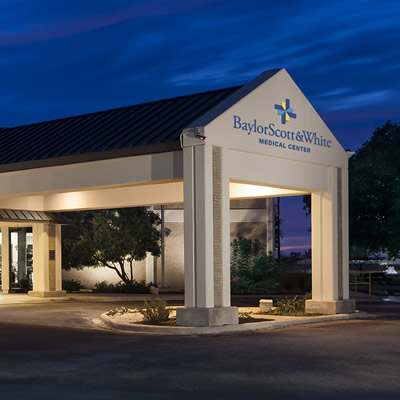
Baylor Scott & White Medical Center - Taylor
305 Mallard Ln , Taylor, TX, 76574
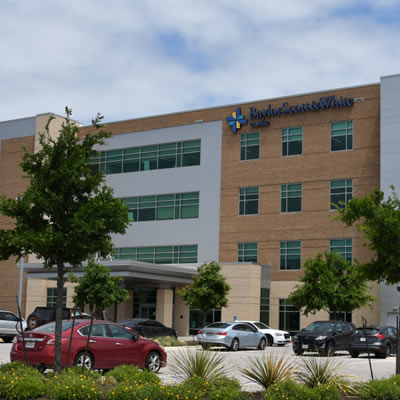
Baylor Scott & White Clinic - Round Rock 300 University
300A University Blvd , Round Rock, TX, 78665
- Monday: 8:00 am - 5:00 pm
- Tuesday: 8:00 am - 5:00 pm
- Wednesday: 8:00 am - 5:00 pm
- Thursday: 8:00 am - 5:00 pm
- Friday: 8:00 am - 5:00 pm

Baylor Scott & White Medical Center - Round Rock
300 University Blvd , Round Rock, TX, 78665
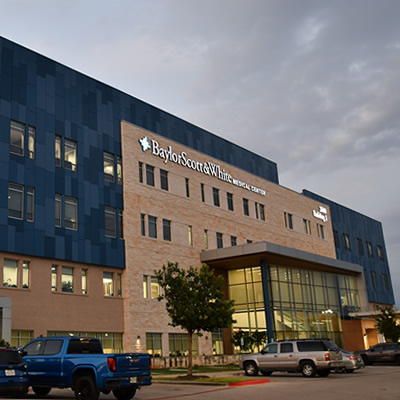
Baylor Scott & White Clinic - Pflugerville Medical Center (Building 1)
2600 E Pflugerville Pkwy Bldg 1, Ste 200, Pflugerville, TX, 78660
- Monday: 8:00 am - 5:00 pm
- Tuesday: 8:00 am - 5:00 pm
- Wednesday: 8:00 am - 5:00 pm
- Thursday: 8:00 am - 5:00 pm
- Friday: 8:00 am - 5:00 pm
- Monday: 7:30 am - 4:00 pm
- Tuesday: 7:30 am - 4:00 pm
- Wednesday: 7:30 am - 4:00 pm
- Thursday: 7:30 am - 4:00 pm
- Friday: 7:30 am - 4:00 pm
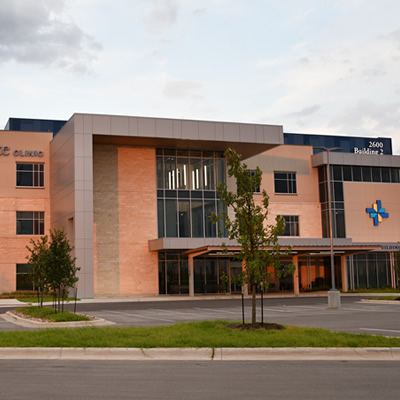
Baylor Scott & White Clinic - Pflugerville Medical Center Building 2
2600 E Pflugerville Pkwy Building 2, Pflugerville, TX, 78660
- Monday: 8:00 am - 5:00 pm
- Tuesday: 8:00 am - 5:00 pm
- Wednesday: 8:00 am - 5:00 pm
- Thursday: 8:00 am - 5:00 pm
- Friday: 8:00 am - 5:00 pm
- Monday: 8:00 am - 4:00 pm
- Tuesday: 8:00 am - 4:00 pm
- Wednesday: 8:00 am - 4:00 pm
- Thursday: 8:00 am - 4:00 pm
- Friday: 8:00 am - 4:00 pm
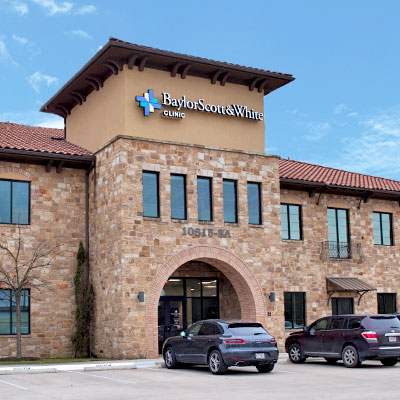
Baylor Scott & White Clinic - Austin River Place
10815 Ranch Rd 2222 , Austin, TX, 78730
- Monday: 8:00 am - 5:00 pm
- Tuesday: 8:00 am - 5:00 pm
- Wednesday: 8:00 am - 5:00 pm
- Thursday: 8:00 am - 5:00 pm
- Friday: 8:00 am - 5:00 pm
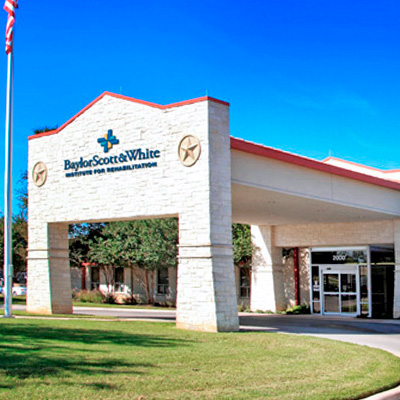
Baylor Scott & White Institute for Rehabilitation - Lakeway
2000 Medical Dr , Lakeway, TX, 78734
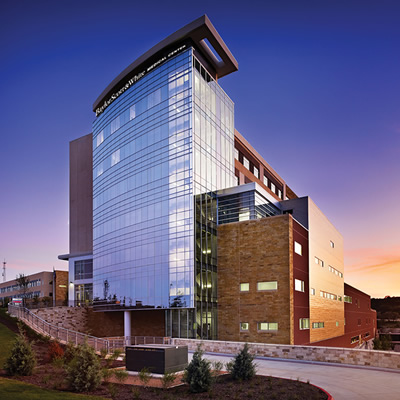
Baylor Scott & White Medical Center - Lakeway
100 Medical Pkwy , Lakeway, TX, 78738
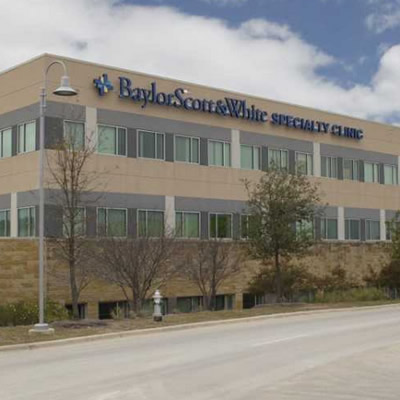
Baylor Scott & White Specialty Clinic - Lakeway
200 Medical Pkwy , Lakeway, TX, 78738
- Monday: 8:00 am - 5:00 pm
- Tuesday: 8:00 am - 5:00 pm
- Wednesday: 8:00 am - 5:00 pm
- Thursday: 8:00 am - 5:00 pm
- Friday: 8:00 am - 5:00 pm
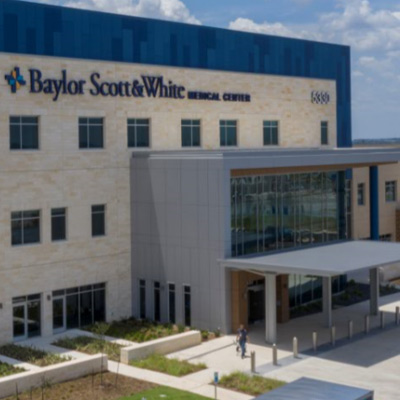
Baylor Scott & White Clinic - Buda Medical Center
5330 Overpass Rd Ste 100, Buda, TX, 78610
- Monday: 8:00 am - 5:00 pm
- Tuesday: 8:00 am - 5:00 pm
- Wednesday: 8:00 am - 5:00 pm
- Thursday: 8:00 am - 5:00 pm
- Friday: 8:00 am - 5:00 pm
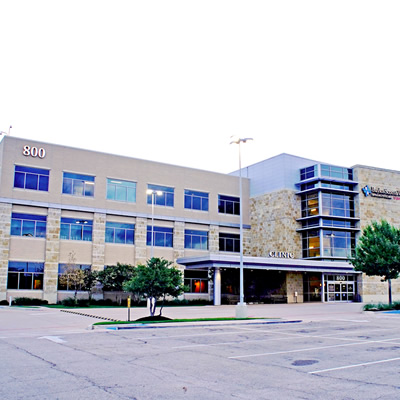
Baylor Scott & White Specialty Clinic - Marble Falls
800 W State Hwy 71 , Marble Falls, TX, 78654
- Monday: 8:00 am - 5:30 pm
- Tuesday: 8:00 am - 5:30 pm
- Wednesday: 8:00 am - 5:30 pm
- Thursday: 8:00 am - 5:30 pm
- Friday: 8:00 am - 5:30 pm
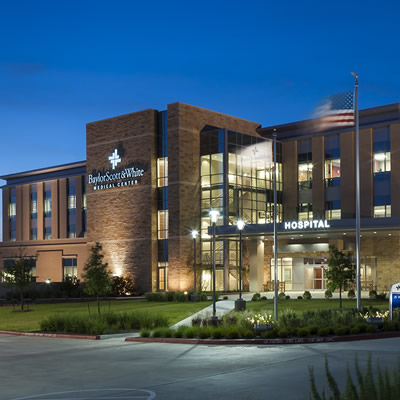
Baylor Scott & White Medical Center - Marble Falls
810 W State Hwy 71 , Marble Falls, TX, 78654
Frequently asked questions
-
Is Tourette syndrome hereditary?
Yes, Tourette syndrome is hereditary, meaning it often runs in families. It isn’t caused by a single gene but by a combination of multiple genes and environmental factors. This means that even if someone in your family has TS, you may or may not develop the condition yourself.
-
How common is Tourette syndrome?
Tourette syndrome affects about 1 in 300 children aged 6 to 17 in the US, which means around 148,000 kids. It’s more common in boys, with 3 to 4 boys diagnosed for every girl. Symptoms usually appear in early childhood and are often noticed more in younger kids.
-
Does Tourette syndrome get worse with age?
No, Tourette syndrome typically does not get worse with age. In most cases, tics are most severe during the early teenage years but improve and become more controllable by the time people reach their early 20s. Rarely, though, tics can get worse when people enter adulthood.
-
Can Tourette syndrome go away?
Tourette syndrome doesn’t have a cure, but tics often get better with age. Many people notice fewer or milder tics as they grow up, and some stop having them altogether. It’s not a condition that gets worse over time, and treatment can help when symptoms are hard to manage.
-
Are you born with Tourette syndrome?
Tourette syndrome usually starts in early childhood, so you’re not born with obvious signs, but the condition is there from a young age. It causes involuntary movements and sounds called tics. Tics often begin between ages 5 and 10 and may become clearer during the teen years. For many, symptoms improve or become easier to manage as they get older.
-
Can you grow out of Tourette syndrome?
Many people with Tourette syndrome see their tics improve or go away by adulthood. About 30% improve in their teen years, while others continue to have tics but with less severity. Only a small number experience worsening symptoms. Overall, Tourette syndrome often becomes easier to manage with age.
-
What triggers Tourette syndrome?
Tics in Tourette syndrome can be triggered by stress, feeling anxious or excited, being tired, loud noises, certain sounds or uncomfortable clothes. Things like family problems or school pressure can also make tics worse. Knowing what triggers your tics can help you manage them better.
